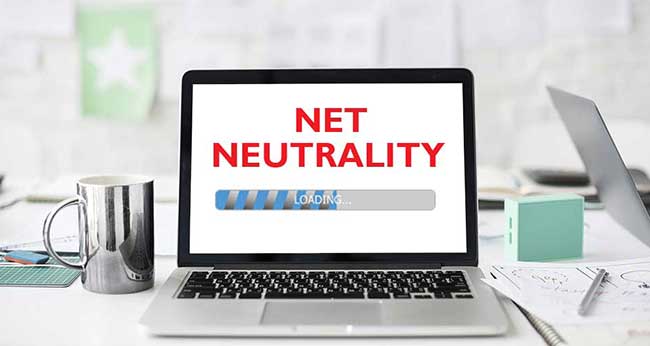
In 2015, the internet was reclassified as a regulated utility under the Communications Act of 1934. The first line of the 1934 Communications Act reads, "for the purpose of regulating interstate and foreign commerce in communication by wire and radio so as to make available, so far as possible, to all the people of the United States a rapid, efficient, nationwide, and worldwide wire and radio communication service with adequate facilities at reasonable charges.” This statement thus enforces the concept of Net Neutrality and forcing ISPs (Internet Service Providers) to treat all lawful data passing through equally, and not intercede between users and their destinations. With the December 14, 2017 repeal of Net Neutrality, the internet was placed back under a light-touch framework and reclassified as an information service.
What Exactly was Repealed?
Net Neutrality or Title II of the Communications Act gave the FCC broader powers over ISPs and prohibited the following practices:
Blocking: ISPs could not discriminate against any lawful data by blocking websites or apps.
Throttling: ISPs could not slow down the transmission of lawful data based on type or content.
Paid Prioritization: ISPs could not create an internet fast lane for which users would pay a premium, and a slow lane for everyone else.
What Could This Potentially Mean for The Cloud?
As cloud computing quickly moves toward a trillion-dollar market, many are asking how the repeal of Net Neutrality could affect the cloud. The full answer will depend upon too many variables for us to paint a full picture as of yet, but we can make some conjectures on potential scenarios. With the repeal of Net Neutrality, ISPs will no longer be restricted to offering an open playing field to all users. We could be looking at a pay-to-play future, where companies will need to pay for the fast lane if they want to keep up.
Commissioner Jessica Rosenworcel had this to say in her Dissention Statement: “As a result of today’s misguided action, our broadband providers will get extraordinary new power from this agency. They will have the power to block websites, throttle services, and censor online content. They will have the right to discriminate and favor the internet traffic of those companies with whom they have pay-for-play arrangements and the right to consign all others to a slow and bumpy road. Now our broadband providers will tell you they will never do these things. They say just trust us. But know this: they have the technical ability and business incentive to discriminate and manipulate your internet traffic. And now this agency gives them the legal green light to go ahead and do so.”
With no more enforceable laws keeping the ISP companies from throttling your access, cloud computing, as well as Internet of Things (IoT) business models could be threatened. ISPs could potentially slow access to the cloud and IoT services forcing companies to pay-to-play. For smaller businesses, paid prioritization could put a major strain on their livelihoods. Without the big pockets of a larger company, small businesses will no longer be able to compete in the internet’s growing economy.
Former FCC Chairman, Tom Wheeler, had this to say earlier this year: “If ISPs get to choose which applications and clouds work better than others in terms of access, speed, and latency, they will control the cloud future." He added that without net neutrality rules, ISPs "can choke growth and innovation or at least demand tribute for passing over their network." When Net Neutrality was passed in 2015, it was intended to protect consumers as more Americans migrated to the internet and the Cloud. It was also meant to protect smaller companies and make sure they could sell their goods and distribute their information without restrictions.
Current FCC chairman Ajit Pai said, “transparency will act as the primary measure against wrongdoing. The agency will require broadband companies to disclose if they are blocking or throttling or setting up fast lanes for certain traffic.” Unfortunately, there will be no law preventing the ISP companies from doing just that.
Now that the vote is over, it will take a few months to get the new rules entered into the federal register. After that, though, we can’t tell the future—the flood gates will open and the lawsuits and challenges will start flooding in.
To keep up-to-date on IT news, the Cloud, and cyber security follow our blog and social media networks. For more information on how Crossroads can assist your company, contact us at 1 (800) 548-3893 or email This email address is being protected from spambots. You need JavaScript enabled to view it..
Articles You Might Find Interesting:
Steps to a Successful Cloud Migration
Hacked: 2017 Data Breaches
What Every Disaster Recovery Plan Should Cover


